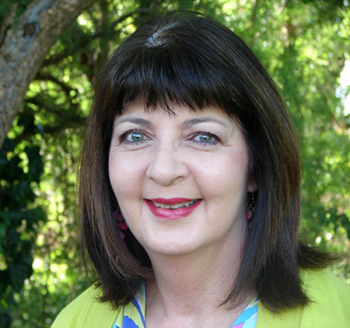Latest News Archive
Please select Category, Year, and then Month to display items
13 January 2020
|
Story Eugene Seegers
|
Photo Anja Aucamp
 Spearheading the digital expansion of the conversational Sesotho course is IDEAS Lab Director, Johann Möller (middle). With him are from the left: Prof Pule Phindane, CUT; Dr Brenton Fredericks, CUT; Bahedile Letlala, UFS Department of African Languages; and Dr Elias Malete, UFS Department of African Languages.
Spearheading the digital expansion of the conversational Sesotho course is IDEAS Lab Director, Johann Möller (middle). With him are from the left: Prof Pule Phindane, CUT; Dr Brenton Fredericks, CUT; Bahedile Letlala, UFS Department of African Languages; and Dr Elias Malete, UFS Department of African Languages.
For many years now, the UFS has been offering a one-year course in conversational Sesotho for staff members; this can then be followed up with the one-year course in advanced conversational Sesotho. The conversational Sesotho for students in the Faculty of Education was introduced in 2018 at the UFS.
The Central University of Technology (CUT) needed a conversational course for its first-year students and approached the Department of African Languages for the development of such a course. Living as we do in a multilingual country; this additional language skill opens doors and often hearts as well.
Using instructional design principles
However, the need was identified by both CUT and UFS to present this crucial information in a way that would be more appealing to digital natives as well as to those less familiar with technology. The Department of African Languages on the UFS Bloemfontein Campus, together with relevant departments from the CUT, approached the IDEAS Lab located on the UFS South Campus, since they already have a reputation for being a specialist on broadcasting and repackaging curricular content for digital presentations. The IDEAS Lab provided technical advice and built the multimedia programme, which will help the user to hear and practice phrases in Sesotho, using instructional design principles. The course will be available to both staff and students belonging to the two universities.
Room for growth
Johann Möller, Director of the IDEAS Lab, says this pilot programme will give both institutions the opportunity to test the use of multimedia for language acquisition. He adds, “Language is extremely complex, and we would like to expand this learning aid in the future.” In fact, the original design has room for growth built into it.
To keep things simple for the user and the building team, it was decided to start out with only four potential everyday scenarios where a staff member would like to speak Sesotho: Firstly, how to greet other persons from different genders; secondly, potential scenarios one might encounter in the university environment itself; thirdly, how to deal with situations at a hospital; and finally, how to use one’s language skills at a filling station.
Pronunciation is key
Each scenario contains three to four conversations that the learner can revise, along with images and audio that illustrate the situation and assist with correct pronunciation. The system does not allow the user to progress unless they have listened to the pronunciations of the sample sentences or phrases.
Further reading material and vocabulary lists are also provided, with the result that people who are using the programme can learn at their own pace. The authoring software Articulate Storyline was used to build the individual scenarios and each conversation or lesson within it. The lessons are also not dependent on an internet connection; they can be downloaded onto a flash memory drive and used offline.
Prof Heidi Hudson appointed to international Committee on the Status of Women
2015-11-24
 Prof Heidi Hudson is looking forward to advancing women scholars globally
Photo: Supplied
|
Prof Heidi Hudson, director of the Centre for Africa Studies at the University of the Free State, was recently appointed by the President of the International Studies Association (ISA) to serve on the Committee on the Status of Women from March 2016 to April 2018.
Representing over 100 countries, ISA has more than 6 500 members in North America and internationally, and is the most respected and widely-known scholarly association in the field of International Studies.
She anticipates that her role on the committee will complement her research interests in feminist security theory and practice in Africa. “I am looking forward to playing a part in the advancement of southern scholars, and the promotion of their voice in global academe.”
Prior to Professor Hudson’s appointment, she served as a member of the executive of the Feminist Theory and Gender Studies (FTGS) Section of ISA.
Representing women of the world in academia
The Committee on the Status of Women has the task of reviewing the status of women in the profession, and making recommendations to the president and the Governing Council of ISA on ways of tracking and increasing the status and visibility of women in the profession.
“Some of the goals of the committee for the 2014 to 2016 period include reaching out to women scholars in the global south; creating an ISA networking website for women scholars; and surveying perceptions of the international relations climate and its needs,” said Prof Hudson. It is also responsible for “tracking gender balance within ISA and its journals, and supporting ISA regions in fulfilling the mission of the Committee on the Status of Women,” she added.
Connecting scholars globally since 1959
The ISA has been the premier organisation for connecting scholars and practitioners in fields of international studies, and promoting research and education. ISA cooperates with 57 international studies organisations in more than 30 countries, is a member of the International Social Science Council, and enjoys non-governmental consultative status at the United Nations.
Prof Hudson’s research interests concentrate on discursive and material gender deficits of liberal peacebuilding in the post colony, amongst other subjects. She is also co-editor of International Feminist Journal of Politics.